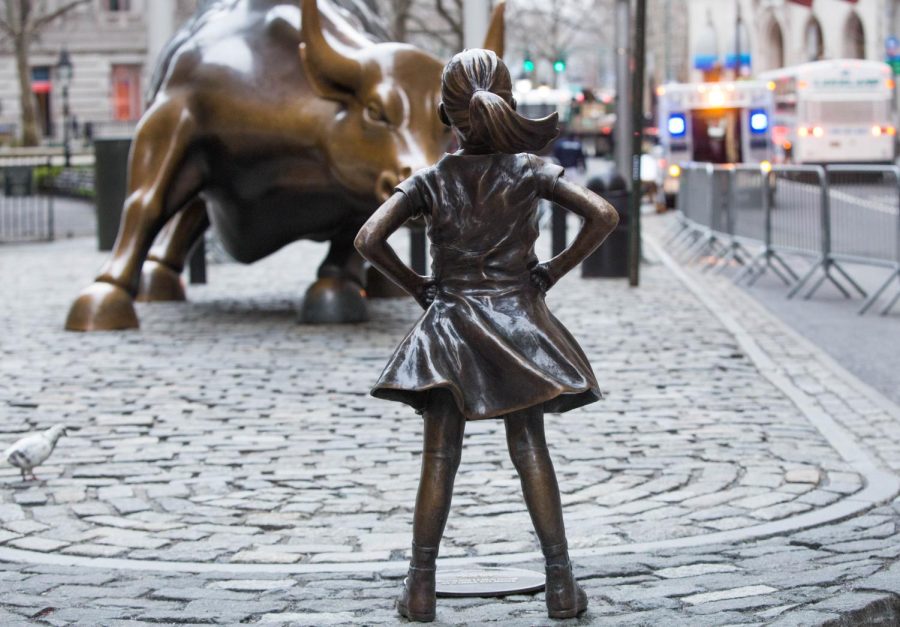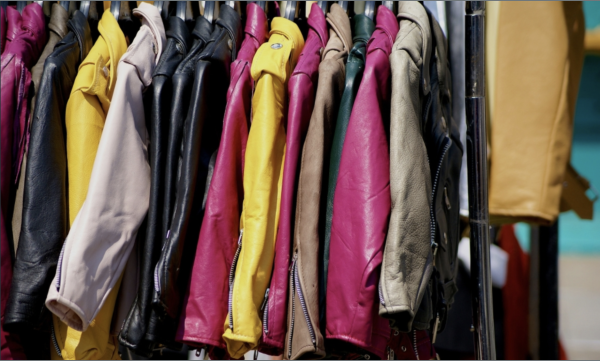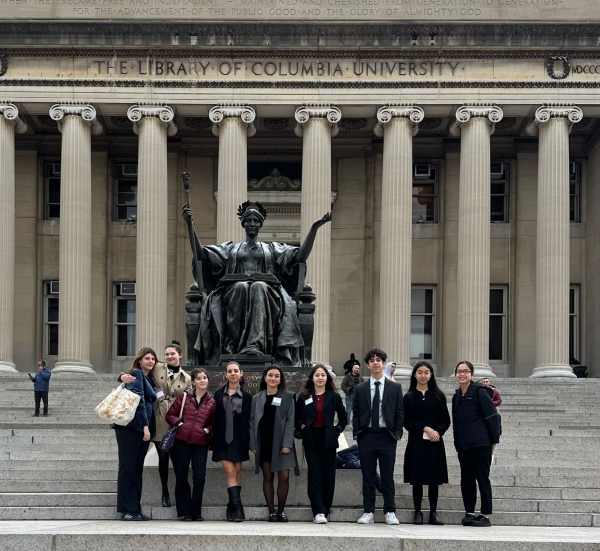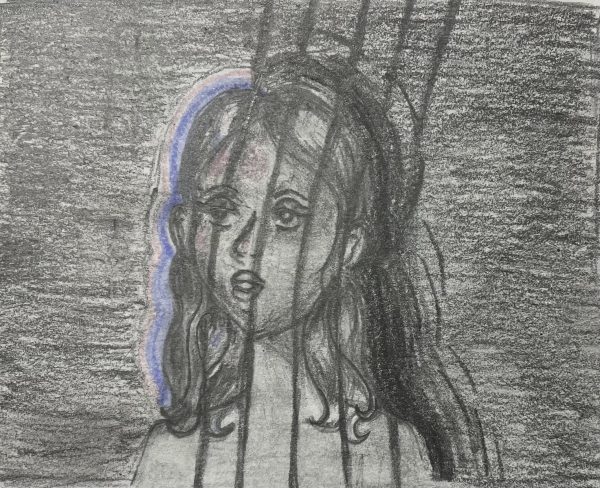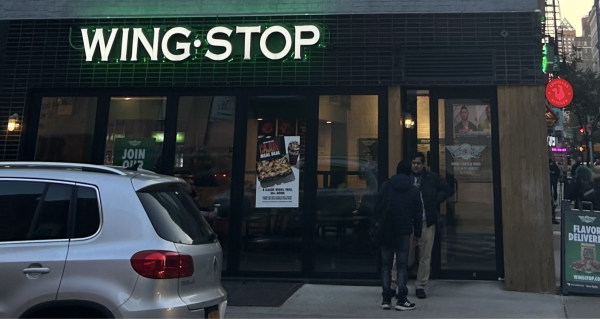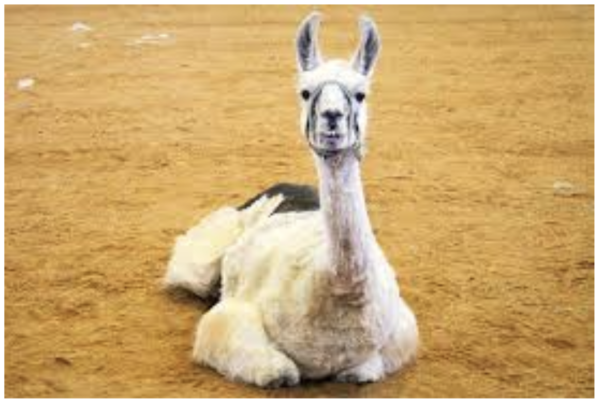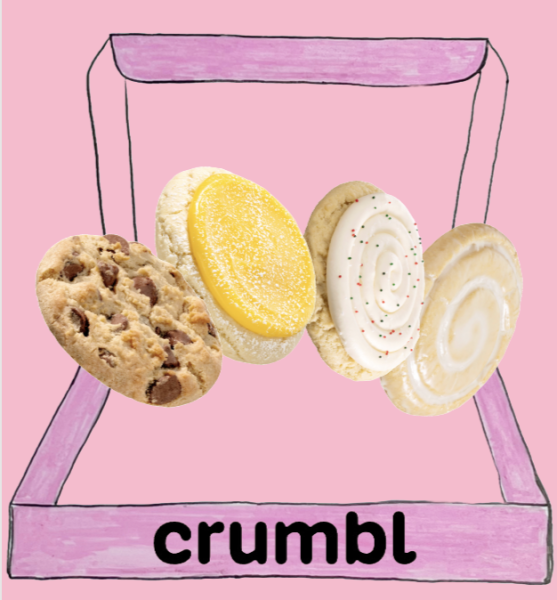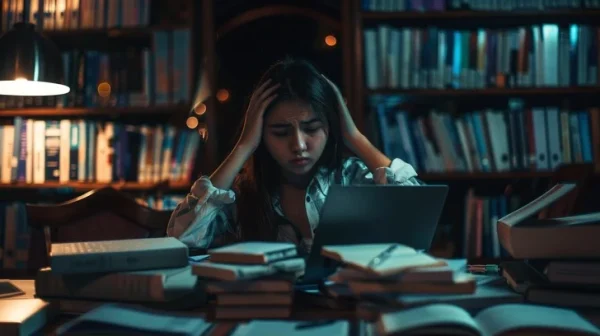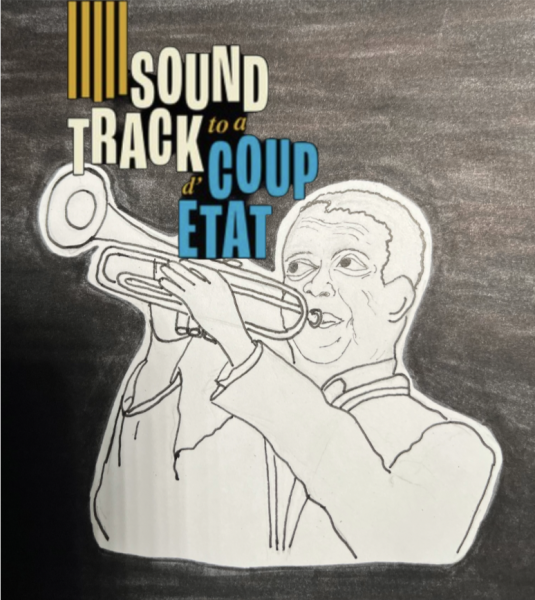Interviews: What Is It Like to Be a Woman in New York City?
Photo by Anthony Quintano
Photograph of the Fearless Girl statue by Kristen Visbal across Arturo Di Modica’s Charging Bull statue in Manhattan’s financial district.
Please note: the following article contains discussions of sexual harassment and assault.
Fear, discrimination, insults, and harassment are only some of the things many women experience in their lives. This Women’s History Month, we asked women in our community some questions about their experience living in New York City. Here’s a glance into their day-to-day life.
Introduction to the Interviewees:
Ms. Voskov is a woman born and raised in Vermont, who has been working at UNIS for fourteen years. Before coming to New York City, she lived in other US cities and Brazil.
Dr. Temnick is a woman who was born in Philadelphia but has moved 13 times since. After working in marketing, she taught Economics for fifteen years at a public school in Arizona prior to coming to UNIS, where she has taught for ten years, while also having earned 3 degrees and accreditation from various universities.
Mrs. E is a 76-year-old woman living on the Upper East Side. She used to be a music teacher at an elementary school where she taught from kindergarten to second grade. Mrs. E is now retired but enjoys doing volunteer work. In her free time, she loves to sing and play the piano.
Ms. Dowd is a 29-year-old woman who has worked at UNIS for three years while living in Brooklyn. Originally hailing from Ireland, she has taught physics in high school for almost a decade in Ireland, the UK, and the US.
This article also contains the responses of a few female Tut House students.
What percentage of women in NYC do you think consider themselves feminists?
Mrs. E: “60%”
Ms. Dowd: “Just in the city? 70%. I reckon a lot more people think they are than they actually are. I’ve only ever lived in big cities, so I would have a clear bias against people not in big cities, but I do think that the farther away you are, and the less people there are, the more homogeneous the people are. So some areas are super supportive, and some […] are not. It’s also much harder for women in rural communities to participate in society in the way that they might wish. So there is a lot more opportunity for women in big cities, not just because there are more people, but because there are people who migrate to big cities, who go there for college and never return, etc. So I think there is just generally more opportunity for women and a better quality of life for women in big cities, which is why I think there are many more feminists in NYC than in most other places.”
Are there times when you feel uncomfortable or unsafe in the city? Do you think it has improved over time?
Ms. Dowd: “I will not be in a subway car on my own if it gets past a certain time. I’m really lucky in the fact that when I get out of the train station, I’m at my front door, or you know, six feet from it. But if it’s past a certain time I will not get the train home, because it’s not a matter of not taking the train, but who you will encounter on the way. My train station is an unmanned station; the exit I use is unmanned [with] no MTA employee or cop ever. Even if I get in a cab I will share my location with at least two different people. I mean I regularly have ‘the fake phone call’. Sometimes it’s a real phone call just saying I’m on the way home, but I’ll just have a one-sided conversation: “I’m on my way home, I’ll be there in 20 minutes. Yeah, you can leave the lights on.” I don’t feel less safe in New York than I would in any other big city, there are certain things, like the ones I just mentioned, in any city. I’m struggling to think of specific things, because they are all a habit now, and it’s hard for things to stick out.”
Ms. Voskov: “I feel like I noticed a shift, and this is actually no joke, the day or the week after Trump was elected. […] I was still taking the subway to work, which I no longer do, and I was very aware of my body in public spaces and had a couple of encounters that felt really just unsafe.”
What was it like to be a woman in NYC 10 or 20 years ago?
Ms. Voskov: “It was always exciting and I think over time, I have just become far more cautious of who is around me. Namely due to that, that stuff on the subway, the subways are crazy places. And I definitely feel like I’ve got my hackles up much more in public transportation than I do anywhere else in the city.”
“Now I definitely am far more suspicious of people, and maybe that has to do with being a mom. And I will always avoid large groups of, especially white, men. I just don’t feel safe around big groups of white men.”
Do you think various media sources (e.g. TV shows, films, articles, etc.) represent life as a woman during the time period you grew up accurately?
Mrs. E: “I think so, especially when I see films about the 40s, after World War II, what life was like[…] and even the 50s. I think they’re pretty accurate.”
Do you think the experiences of being a woman have changed in your lifetime?
Mrs. E: “My attitudes have changed[…] when I went to college in the late 60s, early 70s, girls could be one of three things: you could be a teacher, you could be a secretary, or [you could be] a nurse, and that was it; that was all girls aspired to be… but now, girls can do anything.”
Ms. Dowd: “Definitely yes! I think it has changed more for less marginalized women with more access to resources. I think the big thing is that, like 30 years ago— and I will be 30 this year— if you were my age and didn’t have children yet, people would think that’s a bit weird. And I was born into this, you know, my mom was 35 when she had me, and people asked her if she thought she was a bit old to have kids then. Whereas now, I’m nearing 30, and 5 years away from 35, there is no way I have plans of having kids in 5 years! No plans, I don’t need my own children, I have you guys [students]. And now, no one really makes a fuss out of it. I also think that it is easier for women to go into some traditionally male-dominated fields. So, you know, engineering, some fields of medicine– there’s many more women, even women I know who are in these positions now. But even though it is easier, it’s not equal. But with that it’s like, it’s gotten easier for me, and people like me, but it hasn’t gotten easier for everyone.”
Is there an example or story you’d like to share related to your experiences of being a woman in NYC?
Mrs. E: “[In the early 80s,] when I was teaching in elementary school, I was friendly with the man who was the gym teacher, and we used to hang out a little bit outside of school. He was married […] In school, we’d be [with] a bunch of people and we’d sit and eat lunch. And one day, after about a year of my teaching with him, out of the clear blue sky, he [found out] that I played tennis at the time. He said, ‘Ellen, do you want some tennis balls?’ I said, ‘Sure,’ you know, he was giving them [away]. He said, ‘C’mon in the closet, wait in the closet, I’ll get them for you.’ I go into the closet, and he grabs me. He grabbed me and he tried to kiss me. And he said, ‘Well, I thought you wanted, I thought you wanted to be kissed. Why else would you come in the closet?’ ‘I came in the closet because you said tennis balls!’”
“So that was one incident. [Another time, in the late 70s,] my dentist, when I was sitting in the dentist chair, bent down and kissed me. A full kiss on the mouth […] That’s showing that I wasn’t respected as a teacher, I wasn’t respected as a patient in the dentist’s office. And this dentist’s wife was friendly with my mother. I said, ‘You know what, I’m gonna– I’m leaving. Let’s pretend this didn’t happen. Because if anything like that happens again, I’m gonna have to tell your wife.”
T3 Student: “I was in Coney Island […] the rip-off Six Flags and whatever […] A girl walked up to me and she was like, ‘I really like your outfit, I really like what you’re wearing,’ and that kind of made my day[…] It’s like nice when people compliment what you’re wearing. It’s also like a contrast, because whenever men compliment me I definitely feel like I’m more uncomfortable, but this one has a sense of empowering me.”
“I don’t think [experiences like these are] specifically limited to New York City, but I’ve experienced it a lot in New York City.”
“The thing about New York City is there’s a lot of people, it’s a crowded city, and everyone’s busy. So they usually don’t have time… they don’t go out of their way to do anything, so when they do go out of their way to like do something nice, to take care of each other, it’s a lot more symbolic in a way[…] it feels better.”
T2 student: “I was about 11 or maybe 12 years old on Halloween with my friends; it was me and three other friends, and we were walking around Brooklyn. Since we were still pretty young, our friend’s mom was with us. I remember walking down the street, and a guy in like a truck or something just starts honking at us. And I remember being super confused[…] we have the light, like we’re just crossing normally, what’s going on? I remember my friend giving him the middle finger and her mom being like, ‘What?’ They’re 11 or 12 years old, like how dare you, this is so inappropriate. I just remember being super confused[…] after we passed I think I kind of put the pieces together and realized what was going on.”
Do you think women will ever get past the fear of being alone in the city?
Ms. Voskov: “I don’t know if we will get past it unless those ‘bro-y’ [men] become a little bit more aware of how they present themselves and their own feeling of safety with each other, and how intimidating that can be for other people. […] Until they start to have a mirror on them, I don’t know.”
“I think women more often maybe learn from fear, which is not how it should be, but that’s definitely been my experience of learning from scary times. Those were in Mississippi. Those were Boston. Those were in Brazil.”
“I feel oddly protected by the millions of people that are in New York unless they’re like those large groups of men. And then I don’t make eye contact. I avoid, avoid, avoid. I do not like that. And that could be just coming from my own experiences.”
In what ways do you think your role as a girl and later, a young woman during your childhood and teenage years affected your adult life?
Mrs. E: “When I went to school, there was a thing called the ‘SP,’ [which stood for] Special Progress. You took a test when you were in the sixth grade, and so when I was in the sixth grade, I took the test. [When] I passed over to the seventh grade, [I] skipped a grade to the ninth grade, so I was sixteen my first year of college. I graduated high school at fifteen and a half, so I was very young. That affected me, because I was, and still am, pretty immature [… The other girls] were playing with boys and I was playing with dolls. So I didn’t have a very good self-esteem. I was very shy and very quiet […] until I went to a music camp in the summer where I saw all the kids who were like me, all kind of nerdy and into our instruments […] not into sports as much, not into dating that much, and we all were, I guess, a little more intellectual. […] We were on a higher level than them. I had a very very low self-esteem until I met these kids in camp who were just like me. I was pushed, my parents didn’t push me, I pushed ahead to skip some grades, so I was much younger than the other kids.”
Ms. Dowd: “I think I come from a family of interesting women. I think they are all very different, but I think that they all have that in common. It was really only after my grandmother died, and my mum sort of opened up about her, that I began to understand more about myself and being a woman. You know, [my mother] would say, ‘Oh, she [my grandmother] said something to me and I really didn’t like it’ where I realized oh, you said that same thing to me and I also didn’t like it, and I said that to you and you thought nothing of it. I think that made her think more, but I am very lucky that I have always been surrounded by women who hold each other up. If you look in [the] media, Jersey Shore, for example, they often depict these women as ‘catty’ or argumentative to influence a narrative on women about how they should be to each other. When in reality, any woman I know would be like ‘Peace out, I don’t want to be friends with you.’ And I think that I’m lucky that every woman that I’ve come to know, that their input has been positive. But also that I got to grow up in a time where I didn’t pick up any bad habits that my mom has, or my grandmother had— if you know what I mean.”
What are your views on the gender dynamics in the field or subject you teach? Has this changed over time?
Ms. Voskov: “The field of English is dominated by female teachers. And probably mostly the books that are read in school are mostly female characters. […] Everyone’s reading about girls. Not that that’s bad, but thinking about that term feminism there’s room for more equality there and whose stories are we hearing.”
Dr. Temnick: “In the early 1980s, Economics was not a robust field for women, and it is now. […] It’s the most popular undergraduate class. Women are thriving in positions in economics. […] Entrepreneurship is on an incredible rise. The pandemic fed into that too. Many small businesses are turning out to be the most promising.”
Mrs. E: “I don’t know about how it changed, but back then, all the music teachers I knew were women. The field itself wasn’t dominated by women, it was just the teachers, I think. It could have also been because of the age group I worked with. I worked with the little ones, so it was more about fun and being silly, and playing games. Maybe guys wouldn’t be interested in doing that […] I wasn’t afraid to sit on the floor and play games with the kids and crawl and do things to teach them rhythm […] I don’t know [if] the guys were like that. But that’s a very big stereotype that I’m doing now, so I’m not being right in doing that. For music teachers, I think that the female music teachers were a little less controlling.”
Ms. Dowd: “I’ve only had one group that was gender-balanced, and that’s only if you say there’s only two genders which there isn’t. And you know that has to do with boys and girls ratios every year when people are born and whatnot, but you know I teach a very traditionally male-dominated subject. I think that [in] the switch from group to group, whether it be from more female, which happens very rarely, to more male or vice versa, there is always a change. Like my T4 year right now has a lot more boys than girls, but it’s also a relatively small group. But with my T3 year, it’s like the same amount of girls, but the group is bigger, and there is just definitely a change in attitude whenever something like that changes. Another thing is though, that, you know, I’m not your typical physics teacher. I sort of stand out a bit more in that, and that leads more people like me to my course. In my previous school, I started out there were very few girls in Physics, by my last that number grew by a lot. My principal asked me why I thought the shift happened, I was like “Uhh… Hello?” You know, it’s gonna have an effect when something really changes representation-wise, more marginalized people are going to have more confidence and drive coming in.”
What do you think could still be improved in terms of gender equality in New York City?
Ms. Voskov: “Putting more women in power, in decision-making positions. Electing more women. […] We need expansion of what makes a human and it goes beyond male or female. I think a lot of the problems that we have now are because we have been in such a binary about everything, forever.”
Mrs. E: “What’s happening now with wages, what’s happening with the women’s soccer team. Men’s attitudes are still very condescending towards women and dismissive of women in offices and a lot of jobs—it’s still ‘come here, hon’ and ‘come here, cutie’ or little pinches in the tush. You know, they’re still being disrespectful to women and not treating us as equals. I think even if they’re told to [treat women as equals] and it seems like they are, deep down inside they don’t consider us equals.”
What is it like to be a woman in New York now or in UNIS specifically?
Ms. Dowd: “In UNIS as an adult it’s pretty okay. I’ve heard from lots of female students that it is less pleasant being a female student, and while that’s horrifying it’s not surprising. In New York I think it’s alright, I don’t think you get more or less harassment than anywhere else. With the disclosure that I’m white, therefore my life is automatically easier, I’m cis[gender] which automatically makes my life easier. But it’s really interesting now being in America, as I’ve come from a country [Ireland] that has finally stopped regulating women’s bodies, and now I live here and you see down South [laws are being passed now that DO regulate women’s bodies] and that it’s slowly creeping up. There is less access to healthcare, and now not only that, but there is legislative restriction of healthcare which is […] horrifying, because in 2018 I campaigned and voted for those rights at home, and now I’m seeing that happen in reverse.”
Are there any specific instances where you’ve noticed you are being treated differently because you are a woman?
Ms. Dowd: “In my first year of university, I was in this huge ‘Intro to Physics’ course, and it had a bunch of different degree programs. But it was only me and this woman, who I am still friends with, who were the only women in that class of like 300 students. And it was 3-hour lab blocks, lecture style, where the professor would do different labs and call someone up to do each one of the steps, just random people. Someone came up and took a measurement, and he said “Oh! We’ll get one of the girls up to see if the measurement is different when a woman does it.” I don’t even remember if it was me or my friend, and I didn’t make a big deal of it at the time, because I was 17, but now I am outraged. I also had a run-in with an advisor at my last school, who was telling a student, who by the way was doing really well that “it’s okay if you don’t do that well because physics isn’t for girls” and at that point, there was like steam coming out of my ears and I went up to that woman’s office and said: “Mm, these are the reasons you’re wrong.”
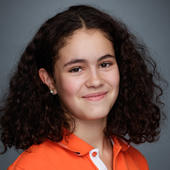
I'm Estela and I'm in the class of 2023. I love cooking, reading, and listening to music. I also highly enjoy writing, especially about issues that affect...
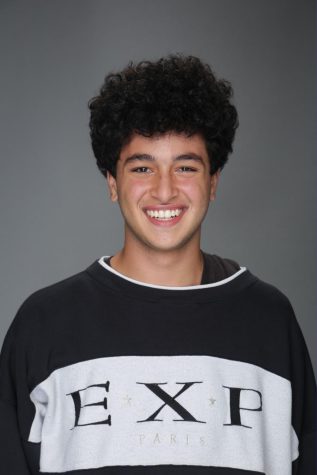
I'm in the class of 2023, I've lived in New York City my whole life and have been at UNIS since JA. This impacts a lot of the writing I do relating to...



